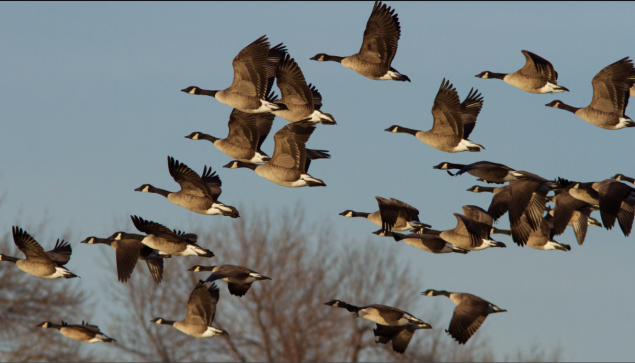In Canada and around the world, agroecology emerges as a crucial response to contemporary challenges in agriculture.
In this article, we explore the fundamental principles of agroecology, its current state in Canada, and its important connection to sustainable food movements.
What is agroecology?
“First and foremost, agroecology is about the deep relationships between people, communities, nature and the land,” writes Faris Ahmed in his report Growing Common Ground: Pathways to advance agroecology policy in Canada (2022). This vision marks our starting point.
The National Farmers Union (NFU) describes agroecology as “a holistic approach to food production that uses—and creates—social, cultural, economic and environmental knowledge to promote food sovereignty, social justice, economic sustainability, and healthy agricultural ecosystems.” As a discipline, it combines the concepts of agriculture and ecology to develop more sustainable food systems. Based on an understanding of natural ecosystems, it aims to design agricultural practices that maximize yields while preserving biodiversity and minimizing environmental impact. For Via Campesina, it is a way of life in itself, aiming to “transform structures of power in society.”
The ten elements of agroecology proposed by the Food and Agriculture Organization of the United Nations (FAO), and the eight common pillars defined by the National Farmers Union (NFU), have largely inspired this article. These two agroecology frameworks highlight the union between environmental sustainability and social and economic justice.
The current state of agroecology in Canada
Although agroecology is far from being a new concept, the multiple crises facing humanity reaffirm its relevance and, in Canada, it is progressively gaining ground. Farmers, researchers, and policymakers increasingly recognize its potential to create more sustainable and resilient food systems. Today, local and national initiatives are in place to promote the adoption of agroecological practices, encouraging crop diversification and the reduction of pesticide use.
According to Farm Folk, City Folk, “adopting an agroecological approach to agriculture includes economic security and sustainability for farmers. Agroecology not only emphasizes the environmental well-being of the land and nature, but the approach also offers increased economic resiliency.”
However, despite promising advances, agricultural government policies sometimes seem out of step with the urgent need for a sustainable transition. Without a firm commitment to agroecology, many farmers are left without the necessary support to adopt more sustainable practices. Financial incentives remain insufficient, and concrete policies to encourage a true shift towards agroecology are lacking. Moreover, land exploitation and pressures from the agri-food industry compromise progress towards environmentally responsible agriculture. To ensure a sustainable future, the government must align its policies with the ecological emergency and strengthen its support for agroecology.
Agroecology and food movements
Agroecology is closely linked to sustainable food movements, which aim to transform food systems to make them more equitable, ethical, and ecological. This synergy recognizes the need to establish a connection between farmers, consumers, and local communities.
At the heart of these movements in Canada, the National Farmers Union (NFU) and the international movement Via Campesina stand out for their commitment to agroecology.
- The NFU, which represents the interests of Canadian farmers, fights to promote sustainable agricultural policies. It organizes workshops, training, and events to raise farmers’ awareness of the benefits of agroecology and advocates for governmental support for agroecological practices.
- In parallel, Via Campesina, with its millions of members across the world, campaigns for social justice and environmental sustainability. In collaboration with organizations such as the NFU, the movement organizes demonstrations and educational initiatives to strengthen agricultural advocacy and promote the sharing of knowledge in agroecology.
It is important to note that international processes like Nyéléni and the commitment made by 49 countries through the Agroecology Coalition also deeply enrich sustainable food movements. These initiatives underscore the importance of agroecology in global agricultural policies, and encourage international collaboration for an ecological transformation of our food systems.
These combined efforts highlight the momentum of ecological agriculture and contribute to increasing the knowledge of farmers, policymakers, and the general public about this practice. They also strengthen the presence of Canadian farmers in discussions related to sustainable agriculture, both locally and internationally. The collaboration between the NFU, Via Campesina, and other actors in the food movements highlights the potential of agroecology for the future of agriculture in Canada, guiding us towards more equitable and ecological food systems.
Rooted in the knowledge of Indigenous Peoples
Agroecology in Canada draws deeply on the principles of respect for the land that are rooted in the ancestral knowledge of Indigenous peoples. It recognizes the interdependence between all forms of life, a precious legacy of Indigenous cultures. We see this, for example, in how agroecology values respect for natural cycles and the strong connection between our cultures and agriculture, among other aspects.
Looking towards Northern Canada, we see that agroecology is not a new trend but rather the continuation of Indigenous food practices such as hunting, fishing, and gathering. Research shows that the framework of agroecology adapted to northern regions supports more sustainable food systems across the region, ensuring that Indigenous land and food sovereignty are prioritized.
The power of agroecology lies in its ability to promote contextualized approaches, rooted in local ecological and social realities, thereby recognizing that what is effective in one part of the country can inspire adapted solutions in other regions. This perspective guides us towards ways of reflecting on the future of our agriculture, highlighting in particular the value of traditional ways that respect the environment. They challenge Western notions of progress and development approaches based on human domination and management of nature, and encourage an open dialogue to better understand and respond to the varied and distinct needs of communities across Canada.
Cultivating a sustainable food future
Agroecology in Canada represents an essential strategy for establishing a more sustainable food system. Scientific evidence shows that adopting agroecological practices can not only improve soil health and reduce environmental impact, but also foster the economic resilience of farmers.
The close links between agroecology and sustainable food movements underline the importance of rethinking our approach to food production. Collaboration between farmers, researchers, policymakers, and consumers is essential to facilitate the transition to more equitable, ethical, and environmentally friendly food systems that promote ecological and economic resilience.
By cultivating a sustainable food revolution, Canada can play a leading role in creating a future where food sovereignty coexists with the preservation of biodiversity and the fight against climate change, while supporting local economies, strengthening Canadian agriculture’s resilience, and driving productivity gains. To achieve this, it is imperative that the Canadian government reconsider its position and strengthens its efforts in favor of agricultural policies that truly support agroecology, thus ensuring the long-term resilience and sustainability of the agricultural sector.


